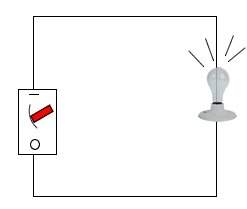
What would occur if you were to replace the bulb in the circuit with a much brighter bulb?
a
question 20 options:
more energy would be transferred from electrical energy to light energy.
the light bulb would not work as it would require too much energy.
the new bulb would only burn as bright as the old one because the same amount of energy is available.
the new bulb would not fit into the system.


Answers: 3


Other questions on the subject: Physics


Physics, 22.06.2019 19:40, rileybaby34
Uranium has two naturally occurring isotopes. 238u has a natural abundance of 99.3% and 235u has an abundance of 0.7%. it is the rarer 235u that is needed for nuclear reactors. the isotopes are separated by forming uranium hexafluoride uf6, which is a gas, then allowing it to diffuse through a series of porous membranes. 235uf6 has a slightly larger rms speed than 238uf6 and diffuses slightly faster. many repetitions of this procedure gradually separate the two isotopes. what is the ratio of the rms speed of 235uf6 to that of 238uf6? express your answer to five significant figures.
Answers: 3


Physics, 23.06.2019 18:00, khaylaperry
Diego kicks a soccer ball from the end line. his fellow students time and mark the soccer ball as it moves down the field. the graph represents the ball's progress.
Answers: 2
You know the right answer?
What would occur if you were to replace the bulb in the circuit with a much brighter bulb?
Questions in other subjects:



History, 03.12.2019 21:31

Mathematics, 03.12.2019 21:31









